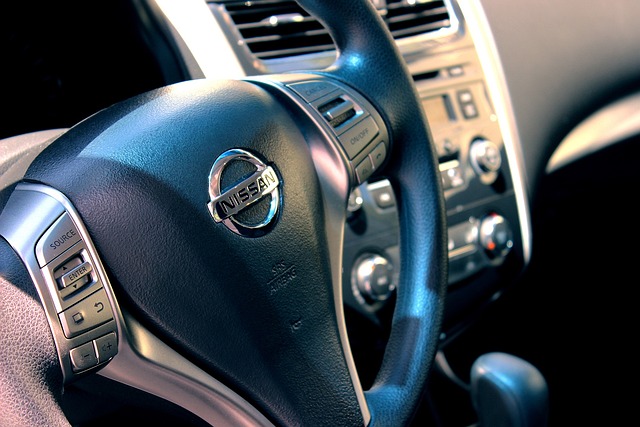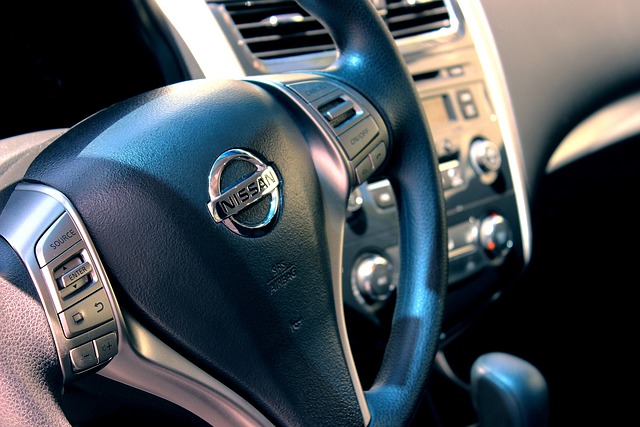When considering replacing your car battery, lithium batteries are a top choice due to their superior performance and longevity compared to traditional lead-acid batteries. Lithium batteries offer a service life of 10 to 20 years under normal conditions, a significant upgrade from the typical 3 to 5 years of traditional batteries. They are also more robust against wear and tear, resistant to the memory effect, and maintain stable power for modern vehicles' electronic systems. Lithium batteries contribute to fuel efficiency and overall vehicle performance, despite their higher initial cost, which is offset by fewer replacements and maintenance over time. They are particularly beneficial for those living in climates with extreme weather conditions as they provide consistent power. Moreover, lithium batteries are more eco-friendly due to their low-maintenance design and the potential for recycling, contrasting with the environmental concerns of lead-acid batteries. The industry is focused on reducing the ecological footprint of lithium batteries through sustainable practices and ongoing research. For drivers who prioritize efficiency, durability, and a reduced environmental impact, replacing a car battery with a lithium model aligns with these goals while supporting vehicle reliability and performance needs.
When contemplating the best option for your vehicle’s power needs, the choice between lithium and traditional batteries can be pivotal. This article delves into a comprehensive comparison of these two technologies, examining their lifespans, costs, performance under various conditions, safety aspects, maintenance requirements, environmental footprint, and future trends. Understanding Your Power Needs will set the stage for discerning the optimal choice for your transportation needs. As we navigate through Lifespan and Durability, Cost Analysis, Performance in Diverse Conditions, Safety and Maintenance Considerations, and Eco-Friendliness and Environmental Impact, the data presented will guide you towards an informed decision. The Future of Automotive Power provides insight into the industry’s trajectory, highlighting why many are opting for lithium batteries to replace car battery systems.
- Understanding Your Power Needs: Lithium vs. Traditional Car Batteries
- Lifespan and Durability: How Long Do Lithium vs. Traditional Car Batteries Last?
- Cost Analysis: The Economic Implications of Choosing Lithium Over Traditional Car Batteries
- Performance in Diverse Conditions: Operational Efficiency of Lithium vs. Conventional Car Batteries
- Safety and Maintenance Considerations for Both Battery Types
- Eco-Friendliness and Environmental Impact: Assessing the Sustainability of Lithium Car Batteries
- The Future of Automotive Power: Trends Indicating a Shift Towards Lithium Battery Adoption in Vehicles
Understanding Your Power Needs: Lithium vs. Traditional Car Batteries

When considering a replacement for your car battery, it’s crucial to evaluate the type that best suits your vehicle’s power needs. Lithium batteries have emerged as a leading alternative to traditional lead-acid batteries due to their superior performance and longevity. Unlike conventional batteries that might require regular maintenance and have a shorter lifespan, lithium options offer greater energy density, which translates to more consistent power output over time. This is particularly beneficial for modern vehicles equipped with advanced electronic features that demand reliable power supply. Lithium batteries are also lighter, reducing the overall weight of the vehicle, and they can handle a wider range of temperatures without significant performance loss. On the other hand, traditional batteries, while often more affordable upfront, may not provide the same level of efficiency or durability, potentially leading to more frequent replacements and maintenance. For those looking for a long-term investment that supports the increasing energy demands of contemporary cars, lithium batteries present an attractive option in the ‘replace car battery’ decision-making process.
Lifespan and Durability: How Long Do Lithium vs. Traditional Car Batteries Last?

When considering a replacement for your car battery, understanding the lifespan and durability of different types is crucial for maintaining vehicle reliability. Lithium batteries have emerged as a front-runner in the automotive industry due to their enhanced performance and longevity compared to traditional lead-acid batteries. Typically, lithium batteries last much longer; they can endure between 10 to 20 years under normal conditions, whereas traditional batteries might only last 3 to 5 years. This significant difference in lifespan is attributed to the advanced technology within lithium batteries, which includes more robust materials that resist wear and tear over time. Moreover, lithium batteries are less prone to ‘memory effect’ issues that can shorten the life of traditional batteries, as they do not need to be fully discharged and recharged to maintain peak performance. For drivers seeking a long-term solution with fewer replacements over the vehicle’s lifecycle, lithium batteries present an attractive option. It’s worth considering the initial higher cost of lithium batteries against their extended service life, which could save money in the long run by reducing the frequency of replacement and providing consistent reliability.
Cost Analysis: The Economic Implications of Choosing Lithium Over Traditional Car Batteries

When considering a replacement for a car battery, the economic implications of choosing between lithium and traditional batteries are significant. Lithium-ion batteries have become increasingly cost-competitive with traditional lead-acid batteries over recent years. The initial investment in a lithium battery is higher, yet its longer lifespan and reduced maintenance costs can offset these upfront expenses over time. Traditional batteries, while initially less expensive, often require replacement more frequently due to their shorter life expectancy. This means that while you may save money in the short term with a traditional battery, the long-term costs of regular replacements can accumulate, potentially exceeding the total cost of ownership for a lithium battery.
Furthermore, advancements in lithium-ion technology have led to improvements in energy density and efficiency, which translates to better performance and longevity for electric vehicles (EVs). These enhancements are crucial as the automotive industry shifts towards electrification. The consistent performance of lithium batteries under varying conditions ensures that they can handle the demands of modern driving without the need for frequent replacements. In contrast, traditional batteries may struggle to deliver the same level of performance throughout their lifecycle, which can lead to diminished vehicle range and overall functionality. As such, opting for a lithium battery not only aligns with the industry’s electrification trend but also presents a more economically viable option in the long run for those looking to replace their car batteries.
Performance in Diverse Conditions: Operational Efficiency of Lithium vs. Conventional Car Batteries

When considering a replacement for your car battery, understanding the performance of lithium versus traditional batteries in diverse conditions is crucial. Lithium-ion batteries are renowned for their ability to maintain consistent performance across a range of temperatures and conditions. Unlike conventional lead-acid batteries that can struggle with extreme cold or heat, lithium options offer robust operational efficiency. This resilience is due to their chemical composition and design, which allows them to deliver a stable voltage throughout the battery’s discharge cycle. In contrast, traditional batteries often experience a significant drop in performance when subjected to temperatures outside their optimal range. As a result, drivers who frequently encounter extreme weather may find lithium batteries to be a more reliable choice, ensuring consistent power delivery for engine start-ups and electrical system functions. The replacement of car batteries with lithium technology can thus offer a superior and more dependable energy source, particularly in challenging environmental conditions.
Safety and Maintenance Considerations for Both Battery Types

When considering a replacement for your car battery, both lithium and traditional batteries present unique safety and maintenance aspects that are crucial for responsible ownership. Traditional lead-acid batteries have been the staple for automotive power sources for decades, but they require regular maintenance such as topping up with distilled water and ensuring the terminals are clean and corrosion-free. They also contain sulfuric acid, which can be hazardous if not handled correctly. Proper disposal is essential due to their heavy metal content, which can be environmentally damaging.
Lithium batteries, on the other hand, offer a more maintenance-friendly alternative. They are sealed and require no liquid top-ups, reducing the risk of leaks and environmental impact. Lithium batteries also tend to have a longer lifespan, meaning less frequent replacements over time. Safety-wise, lithium batteries are designed with built-in safety mechanisms that protect against overcharging and extreme temperatures, which can lead to thermal runaway or fire if not managed correctly. While they come with a higher upfront cost, their overall efficiency and reduced maintenance needs make them an attractive option for those prioritizing longevity and environmental considerations when replacing a car battery.
Eco-Friendliness and Environmental Impact: Assessing the Sustainability of Lithium Car Batteries

When considering a replacement for your car battery, the environmental impact and overall sustainability of the options available are paramount. Lithium batteries, while offering significant advantages in terms of longevity and performance over traditional lead-acid batteries, raise concerns regarding their ecological footprint due to the mining and processing of lithium, which can have detrimental effects on the environment. The extraction of lithium involves substantial water usage and can lead to habitat disruption in vulnerable ecosystems. Conversely, traditional batteries often contain lead, a toxic substance that poses risks during both production and disposal. The lead from these batteries can contaminate soil and water sources, posing potential health hazards.
In the pursuit of eco-friendly alternatives, advancements in lithium battery technology have been made to mitigate their environmental impact. For instance, lithium-ion batteries are rechargeable and, if recycled properly, can significantly reduce the need for raw material extraction. Additionally, there is ongoing research into developing less environmentally intrusive methods of sourcing lithium and improving battery life to minimize waste. The commitment to sustainability in the battery industry extends beyond manufacturing; it includes the responsible disposal and recycling processes that ensure these powerful energy storage devices do not become environmental liabilities. As consumers and manufacturers alike prioritize sustainability, the choice between lithium and traditional batteries becomes a decision that balances performance needs with environmental responsibilities. When replacing your car battery, considering the full lifecycle of the product and its impact on the planet is essential for those committed to eco-conscious living and advocating for a greener future.
The Future of Automotive Power: Trends Indicating a Shift Towards Lithium Battery Adoption in Vehicles

When deciding between lithium and traditional batteries for your vehicle, it’s crucial to evaluate factors such as power needs, lifespan, cost, performance, safety, maintenance, and environmental impact. Lithium batteries often outperform traditional lead-acid ones in terms of longevity, efficiency, and eco-friendliness, making them a favorable choice for modern transportation needs. The economic investment in lithium technology can be higher upfront but is typically offset by the lower maintenance costs and longer lifespan, not to mention the support of environmental sustainability initiatives. As trends point towards an automotive industry increasingly adopting lithium batteries, the shift reflects a broader commitment to innovation and efficiency in the replace car battery market. Ultimately, the choice between lithium and traditional batteries should align with your specific requirements and long-term goals, as well as your environmental considerations.
